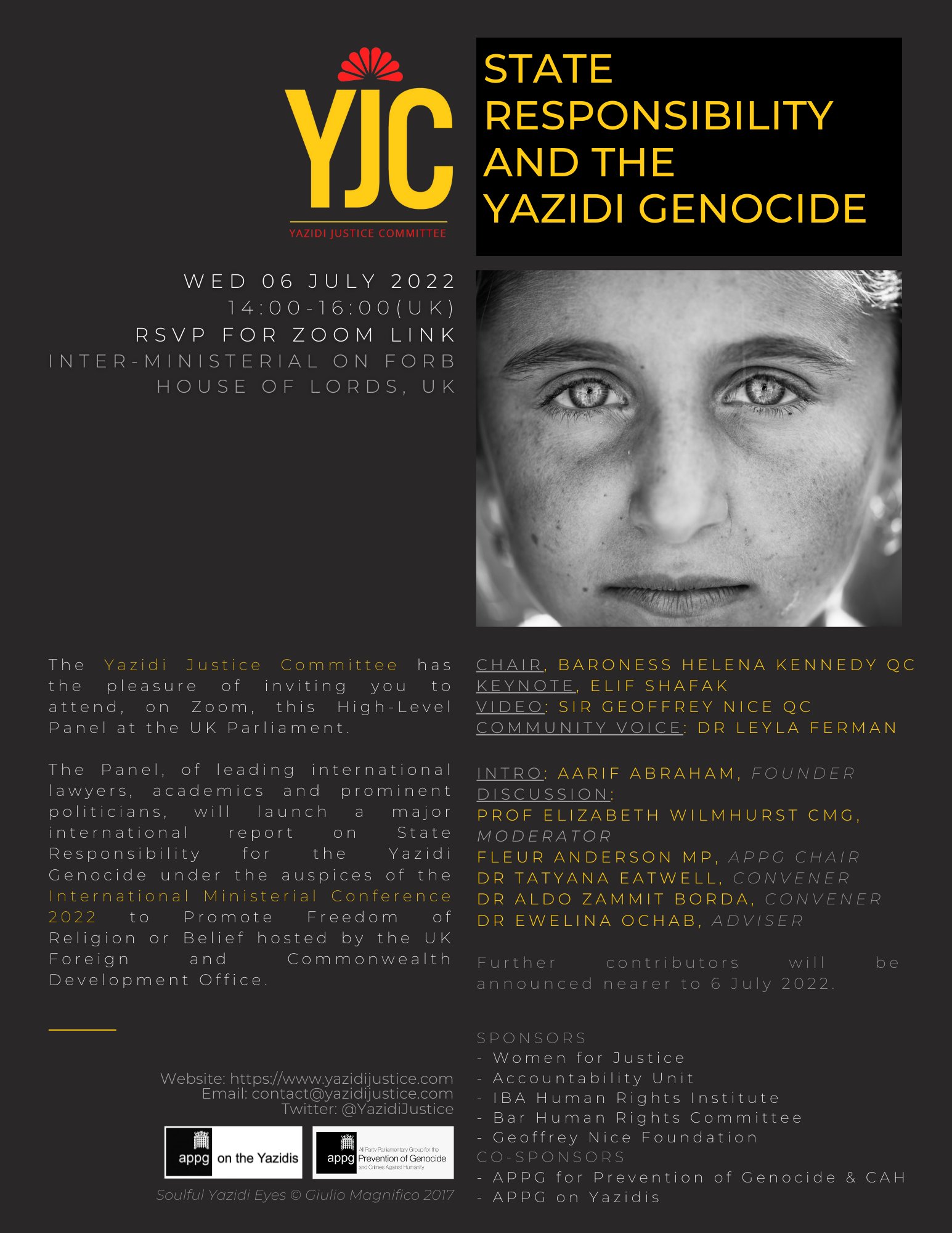
A group of high-level British lawyers are compiling evidence that could hold as many as 10 countries responsible for the failure to prevent genocide against the Yazidis in northern Iraq.
The lawyers, who announced the collaboration as the Yazidi Justice Committee (YJC) on Tuesday have been investigating over the past two and half years the genocide committed from early 2013 by the Islamic State.
The YJC is expected to name three countries in a report next month when the work is complete. The report will be launched on the 6 July.
Aarif Abraham, an international human rights barrister and co-founder of the YJC, said the report would be the first to consider the issue of state responsibility in relation to the Yazidi genocide. He said: “It will serve to put states on notice of their binding obligations to prevent genocide through using all means reasonably available.”
It would be one of the first times that states have faced the risk of proceedings being instituted against them for failing to prevent genocide, and could open up a new form of human rights accountability.
The YJC includes five international human rights organisations and is chaired by Sir Geoffrey Nice, who was formerly a lead prosecutor at the international criminal tribunal for the former Yugoslavia.
We are pleased to announce the work of Yazidi Justice Committee (YJC); a collection of 5 leading human rights NGOs. Please share & and join us for the launch of our major international report on 6 July: State Responsibility and the Yazidi Genocide. https://t.co/Kn5PSfm8mG pic.twitter.com/9U5dHgvHmv
— yazidijustice (@yazidijustice) June 21, 2022
The YJC lawyers have examined evidence that as many as 10 counties could be deemed responsible for the failure to prevent genocide under the UN's Genocide Convention.
The group aim to bring those states before the international court of justice (ICJ). This would require another country to take action, though if successful the respondent states might be required to pay reparations to the victims of genocide.
Aside from the prosecution of a single Islamic State fighter last November, there has been no accountability for the Yazidi genocide.
The Frankfurt trial based on the principle of universal jurisdiction found the Islamic State fighter guilty of genocide over the death of a five-year old Yazidi girl he bought as a salve in 2015. The fighter was extradited to Germany on the basis of an international arrest warrant.
The YJC says there is evidence the genocide is still taking place, and that Yazidis remain in an extremely precarious position in Iraq and Syria largely as a result of the recent resurgence of Islamic State, Turkish drone strikes and an overall sense of neglect by the Iraqis.
Under the principle of universal jurisdiction to address crimes under international law that were committed abroad by a perpetrator, British Tamil activists have been calling for targeted sanctions on leading Sri Lankan Military and political officials. During the 49th UN Human Rights Council session the UN High Commissioner urged member states to act by imposing sanctions on Sri Lankan officials implicated in serious war crimes and by pursuing prosecutions under the principle of universal jurisdiction. Despite these repeated calls from UN officials, human rights organisations, and Tamil survivor communities, Britain’s response remains stagnant.
The US has already displayed that there is ample evidence to sanction Silva and other officials guilty of war crimes perpetrated against Tamil civilians. To this day, Britain has not imposed a single sanction on a Sri Lankan government or military official, a decision which Shadow Asian Minister, Stephen Kinnock, describes as a “moral failing”. Last month Canada's House of Commons unanimously adopted a motion recognising May 18 as Tamil Genocide Remembrance Day, in a landmark move making it the first parliament in the world to recognise the Tamil genocide.
The motion states that "this House acknowledges the Genocide of Tamils in Sri Lanka, and recognizes May 18th of each year as Tamil Genocide Remembrance Day".
Read more at The Guardian

